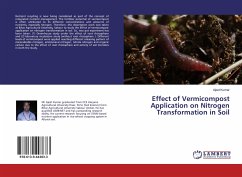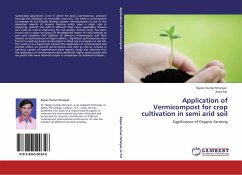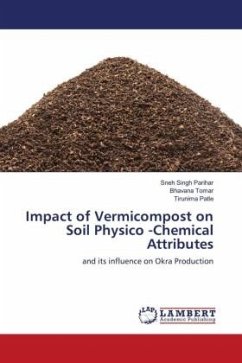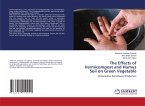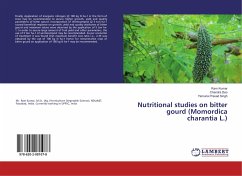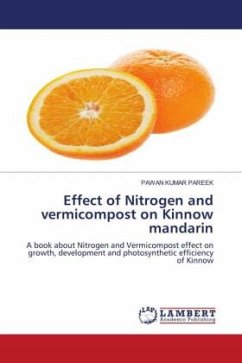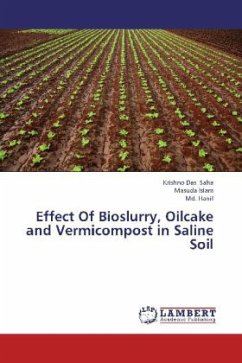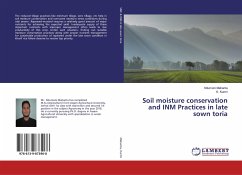Nutrient recycling is now being considered as part of the concept of integrated nutrient management. The fertilizer potential of vermicompost is often attributed to its different concentrations and amounts of nutrients, especially nitrogen. Therefore, this dissertation work was taken at Bihar Agricultural University, Sabour to study the Effect of vermicompost application on nitrogen transformation in soil. So, two pot experiment has been taken: (1) Greenhouse study under the effect of root rhizosphere and (2) laboratory incubation study (without root rhizosphere ). Different levels of vermicompost were applied resulting different releasing pattern of mineralizable nitrogen, ammoniacal nitrogen, nitrate nitrogen and organic carbon due to the effect of root rhizosphere and activity of soil microbes in both the study.
Bitte wählen Sie Ihr Anliegen aus.
Rechnungen
Retourenschein anfordern
Bestellstatus
Storno

